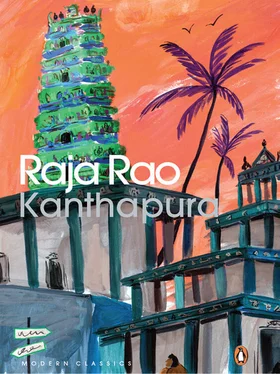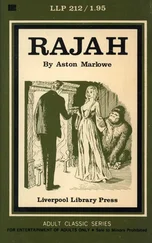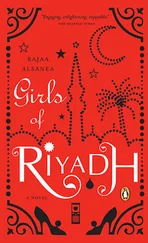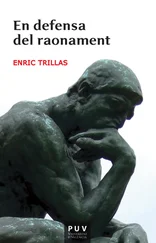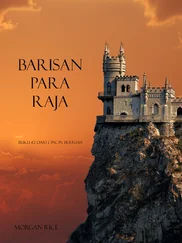Raja Rao - Kanthapura
Здесь есть возможность читать онлайн «Raja Rao - Kanthapura» весь текст электронной книги совершенно бесплатно (целиком полную версию без сокращений). В некоторых случаях можно слушать аудио, скачать через торрент в формате fb2 и присутствует краткое содержание. Год выпуска: 2014, Издательство: Penguin, Жанр: Классическая проза, на английском языке. Описание произведения, (предисловие) а так же отзывы посетителей доступны на портале библиотеки ЛибКат.
- Название:Kanthapura
- Автор:
- Издательство:Penguin
- Жанр:
- Год:2014
- ISBN:нет данных
- Рейтинг книги:3 / 5. Голосов: 1
-
Избранное:Добавить в избранное
- Отзывы:
-
Ваша оценка:
- 60
- 1
- 2
- 3
- 4
- 5
Kanthapura: краткое содержание, описание и аннотация
Предлагаем к чтению аннотацию, описание, краткое содержание или предисловие (зависит от того, что написал сам автор книги «Kanthapura»). Если вы не нашли необходимую информацию о книге — напишите в комментариях, мы постараемся отыскать её.
Kanthapura — читать онлайн бесплатно полную книгу (весь текст) целиком
Ниже представлен текст книги, разбитый по страницам. Система сохранения места последней прочитанной страницы, позволяет с удобством читать онлайн бесплатно книгу «Kanthapura», без необходимости каждый раз заново искать на чём Вы остановились. Поставьте закладку, и сможете в любой момент перейти на страницу, на которой закончили чтение.
Интервал:
Закладка:
‘Why it all depends. Sometimes it is six and a half and sometimes it is seven, with seven measures of fodder husk.’
‘Now, sister, calculate and you will see. You get six seers to the rupee, not to speak of the fodder husk, instead of seven, and your rice does not go into the stomach of Rangi or Madi, but goes to fatten some dissipated Red-man in his own country. Now, do you understand, sister?’
‘Well, if I say “Yes”, what then?’
‘And then — you sow, and your harvest is grand this year. And more people come from Bombay and Sholapur. And they bring bigger carts and larger money sacks. Then you say, “They pay twenty rupees a khanda this year. If I keep my rice it is all such a bother measuring it out to Rangi and measuring it back from her and quarrelling over her measures.” And there are the rats and the worms and the cattle, and then you have to pay revenue, and Bhatta’s interest. And, who knows, rice may go down in price, as it did two years ago. So you go to the agent and say, “All right. I can give you forty-four khandas.” And, as he opens his bag and counts out rupee after rupee, in the backyard they are already saying, “Three. Hm — Four. Hm — Five, and the God’s extra. Hm,” their gaping sacks before them. Night comes and our granary is empty as a mourning-house. Then, the next morning, Husking-Rangi meets you on your way to the river, and says, “And when shall I come for the paddy, Mother?”— “Let Dasara come, Rangi. We’ve still last year’s rice. We haven’t swallowed it all,” you say. But Rangi knows the truth, and when the rainy season comes and there’s little rice to eat, she will pass by your door and spit three times at you in the name of her children. Then she too will go to work on the fields with her husband. And so two work on a field that hardly needed one, and the children will go foodless. And the next harvest’s agents will come and bring veritable motor lorries, such as they have in the Skeffington Coffee Estate, and they will take away all your rice and you will have to go to Subba Chetty and buy perhaps the very rice that grew in your field, and at four seers a rupee too. The city people bring with them clothes and sugar and bangles that they manufacture in their own country, and you will buy clothes and sugar and bangles. You will give away this money and that money and you will even go to Bhatta for a loan, for the peacock-blue sari they bring just suits Lakshmi, and Lakshmi is to be married soon. They bring soaps and perfumes and thus they buy your rice and sell their wares. You get poorer and poorer, and the Pariahs begin to starve, and one day all but Bhatta and Subba Chetty will have nothing else to eat but the pebbles of the Himavathy, and drink her waters saying, “Rama- Krishna, Rama-Krishna!” Sister, that is how it is. ’
‘Oh, I am no learned person,’ explains Nanjamma. ‘You have been to the city and you should know more than me. But tell me, my son, does the Mahatma spin?’
‘The Mahatma, sister? Why, every morning he spins for two hours immediately after his prayers. He says spinning is as purifying as praying.’
‘Then, my son, I’ll have a charka. But I can pay nothing for it.’
‘You need pay nothing, sister. I tell you the Congress gives it free.’
‘Really, you mean it will cost me nothing. For, you see, I’m so occupied at home, and maybe I’d never find time to spin. ’
‘It’s yours, sister. And every month I shall come to ask you how many yards you have spun. And every month I shall gather your yarn and send it to the city. And the city people will give you a reduction on the cotton, and for the rest you have your cloth.’
‘You are a clever fellow to know all these tricks!’ says Nanjamma, beaming. ‘Have a cup of coffee, Moorthy.’ And she goes in and brings out a warm cup of coffee, and in a silver cup too, and when he has finished drinking, he goes down the street to see Post-office Suryanarayana.
Post-office Suryanarayana is already a Gandhist. He asks for two charkas. Then he goes, Moorthy, to Pandit Venkateshia and Snuff Sastri and Rangamma’s widowed sister, Seethamma, and her daughter, Ratna, and Cardamon-field Ramachandra, and they all say, ‘Oh yes, my son. Oh yes!’ And so he leaves the Brahmin quarter and goes to the Pariah quarters, and the Pariahs are so happy to see a Brahmin among them that they say, ‘Yes, yes, learned one’; and Left-handed Madanna’s son, Chenna, and Beadle Timmayya’s son, Bhima, and old Mota and One-eyed Linga and Jacktree Tippa, all of them follow him home, and to each one of them he gives a spinning wheel and a seer of cotton hemp, and they go back with their spinning wheels upon their shoulders, their mouths touching their ears with delight. Not a pie for this!. They would spin and spin and spin, and if that Brahmin boy was to be believed they would have clothes to wear, blankets and shirts and loincloths. They said it was all from the Mahatma!
When they were just by the village gate, they saw a hefty, bearded man, sitting on the village platform, distractedly smoking a cigarette.
‘The policeman,’ whispered Mota to Bhima. ‘The same who was seen the other day.’
‘But he has no uniform.’
‘They sometimes prowl about like this.’
They grew silent as they neared the platform. And when they had passed into the Pariah street they looked back and saw him jump down from the platform, and thump past the temple corner on to the Brahmin street. Oh, the rogue!
3
Bhatta was the only one who would have nothing to do with these Gandhi-bhajans. ‘What is all this city chatter about?’ he would say; ‘we’ve had enough trouble in the city. And we do not want any such annoyances here. ’ To tell you the truth, Bhatta began all this after his last visit to the city. Before that he used to sit with us and sing with us, and sometimes, when Moorthy was late in coming, he would go and get the white khadi-bound My Experiments with Truth and ask Seenu to read it and explain it himself. Then suddenly he went to the city. Business took him there, he said. You see, he always had papers to get registered — a mortgage bond, a bill of sale, a promissory bond — and for this reason and that reason he was always going to the city. After all, when it was the other party that paid the cart fare, what did it matter to him to go to the city? A day in the city is always a pleasant thing. And nowadays, they said, he had even begun to lend out money there. Advocate Seenappa, you know, had appointed him manager of the haunted-tamarind-tree field, and we all knew in what straits that debauchee was now. So Bhatta began to loan out one hundred and two hundred and three hundred rupees. Then came the district elections, and Chandrasekharayya said ‘Two thousand for it’ and so he had it, and that is how Chandrasekharayya is now President of the Tamlapur Taluk. And then there was the Kotyahalli widow, who lived with her widowed mother. It was Bhatta that managed her lands, and she was involved with her husband’s brother. That meant money. Money meant Bhatta — always smiling, always ready, always friendly. Bhatta was a fine fellow for all that. With his smiles and his holy ashes, we said he would one day own the whole village. I swear he would have too had not the stream run the way it did.
So for many a year he was always going to the city. That was why it was so difficult to get him for an obsequial dinner or a marriage ceremony. He would say, ‘Why not ask Temple Rangappa or Post-office-house Suryanarayana?’ And yet Bhatta began life with a loincloth at his waist, and a copper pot in his hand. You should have heard young Bhatta say, ‘Today is the eleventh day of the bright fortnight of Sravan. Tomorrow, twenty seconds after the sixteenth hour, Mercury enters the seventh house, and Ekadashiday begins.’—’When is the Dasara, Bhattarè?’ you would ask, and he would open his oily calendar and lay it carefully on his bulging lap, and deeply thoughtful, and with many learned calculations on his agile fingers, he would say, ‘In one month and four days, Aunt. In just one month and four days.’ And then you asked him for an obsequial dinner for the ninth day of the next moon-month, and he would smile and say, ‘Of course, Aunt. Of course.’ After that he would take his coconut and money offerings and hurry down to Pandit Venkateshia’s house, for the anniversary of his father’s death. Bhatta is the First Brahmin. He would be there before it is hardly eleven — his fresh clothes, his magnificent ashes and all — and seated on the veranda he would begin to make the obsequial grass rings. Such grass rings and such leaf cups too! Never has anything better been seen. And it was so pleasant to hear him hum away at the Gita. The very walls could have repeated it all.
Читать дальшеИнтервал:
Закладка:
Похожие книги на «Kanthapura»
Представляем Вашему вниманию похожие книги на «Kanthapura» списком для выбора. Мы отобрали схожую по названию и смыслу литературу в надежде предоставить читателям больше вариантов отыскать новые, интересные, ещё непрочитанные произведения.
Обсуждение, отзывы о книге «Kanthapura» и просто собственные мнения читателей. Оставьте ваши комментарии, напишите, что Вы думаете о произведении, его смысле или главных героях. Укажите что конкретно понравилось, а что нет, и почему Вы так считаете.
